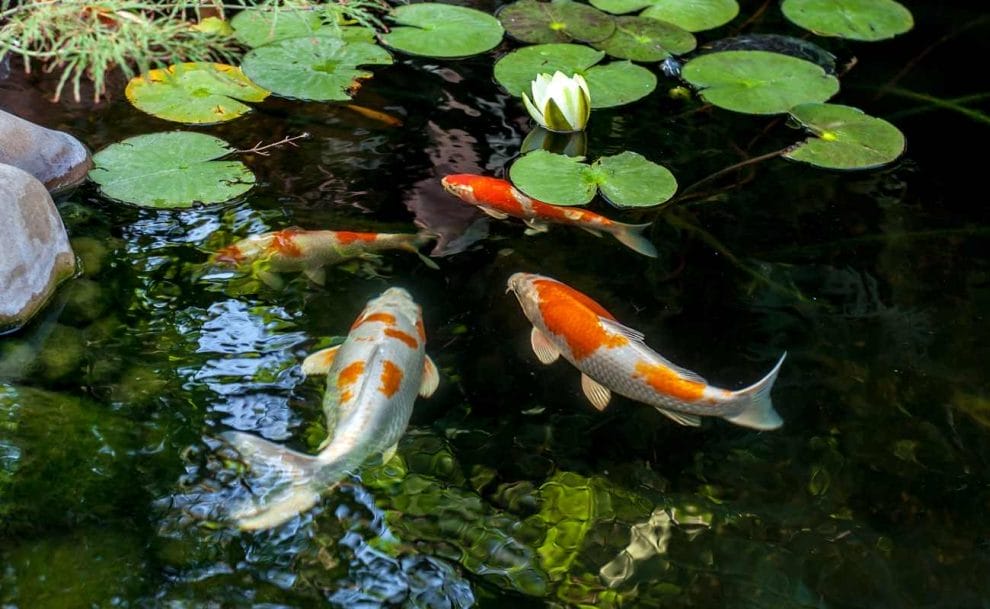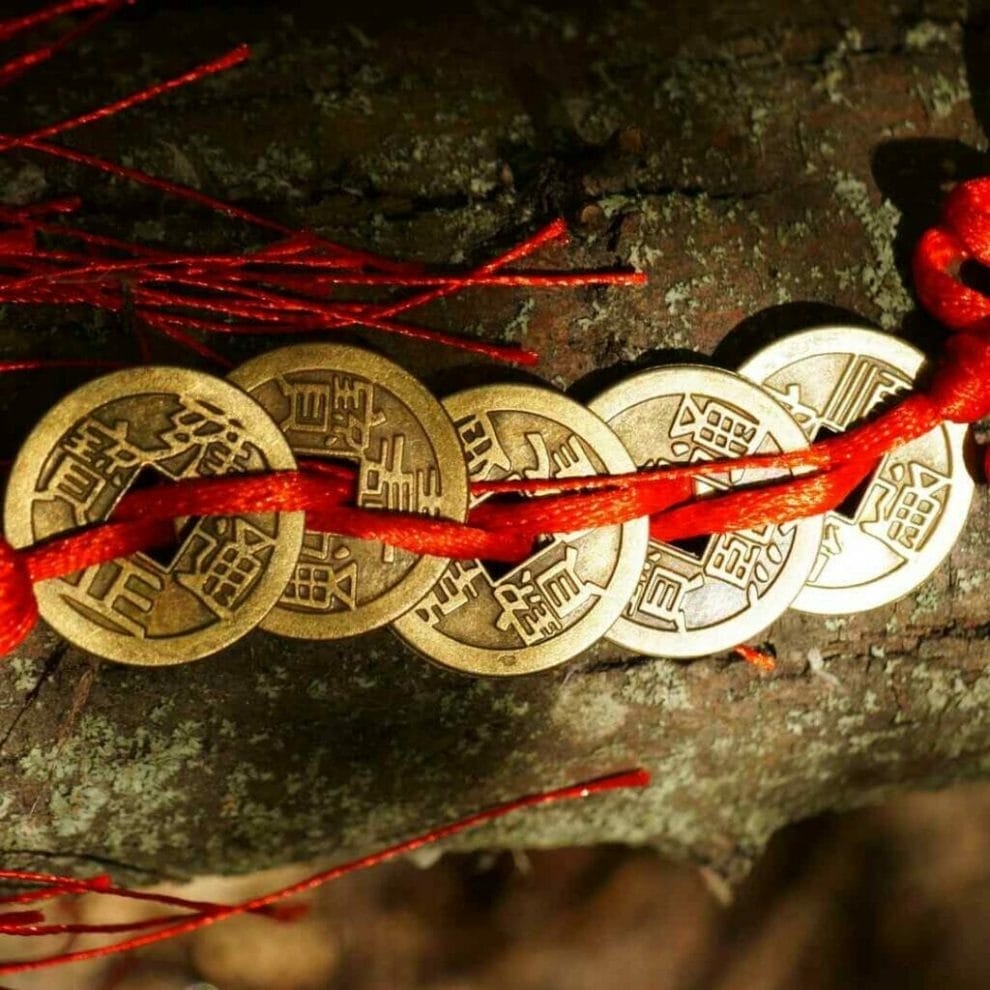
Whether you’re someone who prefers to play casino games virtually at an online casino or in person at a traditional brick-and-mortar casino, you may have considered getting your hands on gambling charms to help boost your chances of winning.
If you’ve tried a lucky rabbit’s foot or a four-leaf clover, it may be time to try some exotic lucky charms from China. Join us as we look at some of the items of Chinese origin that could change your luck when you play games of chance.
Chinese Feng Shui Coins
Feng Shui is a Chinese practice that believes that you can arrange a space to create a more harmonious or positive environment. It includes using certain things in that environment, like Chinese Feng Shui coins. These coins are usually tied together in a row using a red (which is a color believed to bring good fortune and prosperity in Chinese culture) string or ribbon so that they can be hung up around your home.
It’s also believed that keeping Chinese Feng Shui coins on you can also bring you good luck, so you might want to consider keeping a few of these in your wallet or purse when you leave the house. If this superstition is true, make sure you have them nearby to help bring you good luck if you’re playing a game of poker or any other game of chance.
Dragons
Westerners are undoubtedly familiar with dragons, but in Chinese culture, the dragon is quite different from the creatures we’ve seen in shows like “Game of Thrones.” While dragons in Western stories are often portrayed as threatening and evil creatures, Chinese dragons are portrayed as symbols of power, good fortune and wealth. It’s another symbol that appears in Feng Shui, with practitioners placing different types of dragon statues in different combinations and locations around the home to welcome different positive energies into the space.
Jin Chan, or Chan Chuy, the Money Toad
While some people may think frogs are gross, the Chinese take a more positive approach toward frogs and toads, especially Jin Chan, or Chan Chuy, the money toad. Jin Chan is a sculpture of a three-legged toad that is either sitting upon a pile of coins or has a coin in its mouth. It’s another symbol that you’ll find in Feng Shui and is meant to improve and protect your wealth, as well as ward off bad luck.
Koi Fish

If you like keeping fish, you may want to think about adding a koi fish pond to your home to bring you good luck when you gamble. Koi fish are another element of Feng Shui that will provide you with numerous benefits including good fortune, success and prosperity. As to why they represent these things, their colors and resilience make koi fish good luck charms.
While koi fish may sound like a lot of work, the good news is that keeping a koi fish pond isn’t that difficult, so you don’t have to worry about spending incredible amounts of money and time to keep your fish happy and healthy. Hopefully, their presence will bring you good fortune, but if nothing else, they will be a welcome addition to your home.
Lucky Red Envelope, or Hóngbāo
As we have previously mentioned, red is a lucky color in Chinese culture, but a red envelope is meant to be an even more powerful symbol of good luck. The red envelope is entirely symbolic and represents the Eight Immortals that were disguised as coins and protected a child from a demon in Chinese mythology.
These envelopes are specifically part of the traditions associated with the Chinese Lunar New Year. They are filled with money and then gifted to friends and family. The amount of money you receive will depend on your relationship with the individual. For example, parents and grandparents will receive more than siblings.
Maneki-Neko, Lucky Cat or Beckoning Cat
Maneki-Neko, or the lucky or beckoning cat, isn’t a specifically-Chinese lucky charm but is actually quite popular across many countries in Asia, including China, as well as the rest of the world. This lucky cat originated in Japan and is a statue that portrays a white cat with one paw up, the other paw resting on a koban coin (an oval coin from Feudal Japan.) It’s meant to attract good luck and fortune to the owner.
The myth behind Maneki-Neko is that it one day helped save the life of a lord samurai. This lord samurai was taking shelter from a storm under a tree when he saw the cat outside the temple. He noticed the cat appeared to be gesturing for him to come to the temple and as he walked away from the tree, a bolt of lightning struck it. The lord samurai believed the cat had saved his life and he became a patron of the temple. When the cat passed away years later, a statue was made in memory of the moment when it had saved the samurai lord’s life.
Mandarin Oranges

Apart from being delicious, mandarin oranges are an important symbol that represents abundance and happiness. This fruit is exchanged by people during the Chinese New Year to wish them good fortune for the year ahead.
There are many superstitions held by casino goers, but we’d have to say arriving at a casino with a mandarin orange is unlikely to raise too many eyebrows. If anything, the casino security might think you’re bringing in a snack to enjoy while you gamble!
The Laughing Buddha, or Budai
The laughing buddha, also known as Budai in China, is a cheerful monk statue that’s meant to attract good luck and happiness, particularly if you rub his belly. The most popular version of this good luck charm has him seated cross-legged or with one leg to the side and the other across from him. Sometimes he is also holding a bowl above his head, either while seated or standing. It’s another popular item used in Feng Shui.
The laughing buddha has different origins in different Asian countries. In China, this statue is believed to be based on the Chinese monk Budai, a practitioner of Chan Buddhism. He was known for his happy nature, which is why this good luck charm is also known as the laughing buddha.
Try Your Luck When You Gamble at Borgata Online
Whether you believe in lucky charms or not, if you’re looking for the best online casino games, you can find them at Borgata Online. At our virtual casino, you’ll find an exciting range of gambling games including table games like blackjack, craps and roulette as well as online slots, live dealer, variety games and more.
Register at Borgata Online to start playing all these exciting games of chance.
